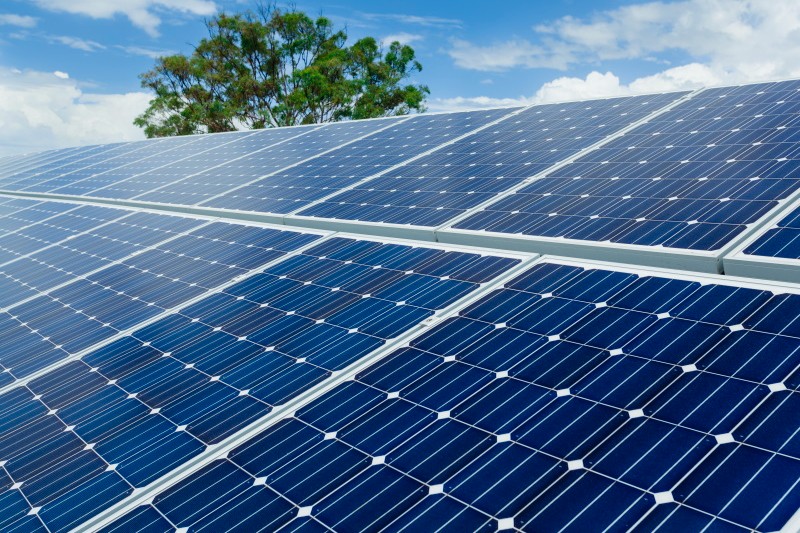
Renewable energy pilot project launches in Vietnam for apparel sector
YarnsandFibers News Bureau 2021-11-26 13:42:17 – VietnamThe Apparel Impact Institute (Aii), the Clean Energy Investment Accelerator (CEIA), and IDH – The Sustainable Trade Initiative are excited to announce the start of a rooftop solar pilot project in Vietnam. The project employs an aggregated procurement strategy to increase the use of clean energy in the garment supply chain.
A number of apparel brands, including New Balance, Arc'teryx, Columbia, H&M Group, Gap Inc., Icebug, lululemon, and Target Corporation are participating in a joint renewable energy pilot project, which aims to bring together 10 to 20 manufacturing suppliers in a group request for proposals (RFP) process for rooftop solar solutions in Vietnam.
HSBC Holdings plc and IDH – The Sustainable Trade Initiative, two charitable funders, are helping to develop and disseminate publicly available garment sector tools and resources developed through this project.
This collaborative strategy to finding rooftop solar solutions for multiple garment manufacturers in a single joint RFP has a number of advantages. By employing a systematic approach to site evaluation and RFP preparation, brands and suppliers gain process efficiencies and save time. Due to the RFP's package of numerous pre-vetted customer sites, solar vendors see efficiencies as well. Economies of scale produced by combining multiple megawatts of projects under one procurement provide increased cost reductions for textile manufacturers and better financing choices for solar suppliers.
This Aii-CEIA-IDH collaboration will be leveraged to create a publicly accessible methodology, best practices, and knowledge products (tools, templates, etc.) to enable deeper knowledge sharing and replication across the clothing supply chain in Vietnam and other targeted nations.
One of the project's main goals will be to create a globally reproducible model for spreading renewable energy across the garment sector in key manufacturing countries.
Transitioning manufacturing to renewable energy, according to the Aii-CEIA-IDH partners, is a significant driver in the clothing industry's ability to meet science-based climate goals. Many manufacturers considering clean energy purchase, however, find challenges navigating complex procurement processes, dedicating capital, and arranging finance.
The partners said that an innovative idea is to aggregate suppliers' clean energy procurement interests to drive procurement efficiency through bundled demand, promote knowledge and best practices sharing, and, in the end, dramatically scale renewable energy use across the garment supply chain," the partners stated. This notion is being put into effect in Vietnam through a new renewable energy pilot program.
In a joint statement of support for Vietnam's high-ambition power development planning, all of the apparel companies involved in the project said they, the undersigned, are a group of international and local businesses doing business in Vietnam, and they urge the Vietnamese government to adopt and implement a Power Development Plan VIII ("PDP8") that prioritizes renewable energy investment and speeds up the country's clean energy transition. Their companies hope that clean energy investment and deployment would be prioritized in the Government of Vietnam's power development planning and policy decisions.
It concluded with a suggestion that the Vietnamese government continues to prioritize ambitious clean energy targets through a supportive renewable energy policy environment that allows Vietnam to increase its clean energy prospects.
The brands and businesses stated that they are ready to work with the Vietnamese government and other market stakeholders to unlock investment, meet goals on a faster timeframe, and scale Vietnam's sustainable, resilient, and cheap energy transition.
The aggregated procurement approach is expected to hasten the industry's decarbonization and make renewable energy procurement available to a broader range of sector stakeholders who may have previously been too small or under-resourced to secure attractive power purchase agreements (PPAs) on their own.
Market Intelligence
Ask for free sample Report

experience
Customer Base
dedicated team
Countries Served Worldwide









